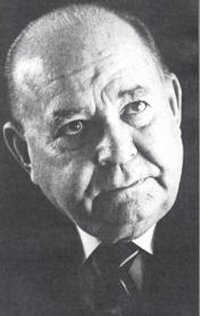Renowned clairaudient and trace medium psychic is one of the most paradoxical psychics in recent history. Critics and skeptics of psychics point to Arthur Ford and say, "See! There is proof that psychics are con-artists", and yet, those who believe in psychics and psychic abilities point to Arthur Ford and say,"See! There is a psychic who provided impressive results and skeptics just cannot accept the results". When it comes to Arthur Ford you will find ample ‘proof’ that he was a hoax and a fraud. At time same time you can find ample proof that his psychic readings yielded impressive results and Arthur himself impressed many a client. As a psychic and spiritual medium, Ford continues to inspire new generations of those interested in spiritualism. His lifework and communications with the dead also continues to fuel the debate between believers and skeptics. What few people, critics and believers alike, seem NOT to examine is the historical context, the time and place, where Arthur Ford practiced his profession.
Arthur Ford was born in 1896 in Titusville, Florida. He would serve in World War 1 (1914 – 1918). Ford first began to experience psychic abilities during his service in World War I in France. Spanish Flu was killing many of the troops during an epidemic. Arthur began ‘hearing’ the names of his comrades. Later, when he checked on his comrades he found them listed as war casualties in the exact order he heard the names. It would seem this experience so effected Arthur Ford that his interest in spirituality and the paranormal became a life long passion. What Arthur Ford purported to experience is what is called ‘clairaudience‘.
In 1921 Arthur Ford became a Spiritualist. He also studied Christianity and received instruction at Transylvania College in Lexington, Kentucky, eventually becoming an ordained minister and serving in a church in Barbourville, Kentucky until 1924. Now, in the 1920’s something like clairaudience was considered ‘occult’ which then, as now, carries a somewhat negative connotation. This is why, when looking into the history of Arthur Ford, you will often find references that he was an occultist. Given the times, studying the ‘occult’ was about the only option when looking for information and insights into a clairaudience.
Though Arthur Ford had a passion for the spiritual and the metaphysical, he also had an interest in magic. In the late 1800s continuing into the late 1940s these two diverse subjects had merged to created ‘mentalists‘, men and women who toured the U.S. and Europe providing an occult show for the paying public. In 1924 Arthur Ford joined such a show and began his professional career.
Arthur Ford’s decision to join a magic and mentalist touring show mirrors today’s controversy about whether Arthur Ford was a true psychic medium or a mentalist who hoaxed the public. Historically, magic and mentalists shows (and touring carnivals) where about the only places psychics and tarot readers could practice their profession. There was no TV, no Internet, limited radio and telephones were just catching on as the latest fad. Most cities in the U.S. had bans on psychic and ‘occult’ paid services within city limits. Many U.S. states and counties banned anyone from providing paid psychic or ‘occult’ services (many of those laws are still on the books today). The practice of making psychic readings illegal and prosecuting psychics continues today. If Arthur Ford was to be a psychic reader as a profession, joining a ‘mentalist’ show was one of his few options.
While studying and practicing Spiritualism, Arthur Ford began experimenting with trace states. While in such a trance he encountered a spirit he referred to as Fletcher. Fletcher soon began speaking through Ford during readings. Ford himself spoke rapidly and often slurred his words. Ford noted that he was completely unconscious when Fletcher communicated through him, and could not remember any of the words that Fletcher had spoken. Ford and his followers were fascinated with finding out about the spirit guide Fletcher’s past, but Fletcher seemed to prefer to remain anonymous and would often give contradictory information when questioned about of his origins.
Eventually, Arthur Ford took his talents overseas. With the help of Fletcher, Ford began making regular contact with the spiritual world and captivated a growing audience in the United Kingdom. Sir Arthur Conan Doyle noted that his experiences with Ford were among the most amazing that he had encountered in 41 years as a spiritualist. During some sessions, Fletcher would speak through Ford and provide seemingly contradictory accounts about observers in the audience. But, his successes would more often than not impress audiences and confound his detractors. Due to the sporadic nature of his communications with Fletcher and other spiritual entities, Ford, unlike noted psychic Edgar Cayce, disliked having his medium sessions recorded.
Ford acquired additional fame in 1929 when he became known as ‘Houdini’s medium’. Houdini had claimed that he would try to give a message to his wife Bess after he had died. His wife knew the location of a written copy of the message, but not the actual message itself. Through Ford, Houdini was claimed to have conveyed a message stating "FORGIVE. BEATRICE. BELIEVE." As soon as the news was announced that Arthur Ford cracked the ‘Houdini Code’ a nasty media battle over the authenticity of the reading broke out. A reporter invited to the seance claimed the whole thing was staged (the reporter claimed two witnesses saw Ford met Bess to obtain the code, Ford produced 3 witnesses in court to prove he was elsewhere when he was supposedly meeting Bess). Bess Houdini first signed a document saying Ford had provided the previously secret message Harry Houdini would send from beyond the grave. Then, after being hounded by the press claimed she was too ill at the time to really know. Later, Bess changed her mind again and wrote a letter to a columnist that the Houdini message was true. The whole incident became ugly, national tabloid news giving skeptics plenty of ammunition to paint Ford as a hoaxer. Arthur Ford himself claimed the seance was genuine which gave Ford’s supporters grounds to continue to believe in him.
Ford continued to build his reputation as a spiritual medium and began to exert influence over the spiritualist community at large. In 1936, he founded the General Assembly, which functioned as a spiritual organization that held an open-minded view on reincarnation. This view of reincarnation put him at odds with the majority of the spiritual community, whose organization known as the National Spiritualist Association opposed the idea of reincarnation. He helped found the Spiritual Frontiers Foundation in America in 1955.
In 1967, Ford agreed to a national Canadian TV broadcast of a psychic reading with Bishop James Pike. Bishop Pike had lost his son to suicide and claimed that poltergeist phenomenon around him indicated his son was trying to reach him from beyond the grave. In a trance medium state, Ford conveyed messages from Pike’s son and another message from noted theologian Paul Tillich. As a result of this psychic reading, Bishop Pike confirmed his belief in spiritual mediums and wrote about this topic in his book The Other Side. Ford’s fame experienced a resurgence, and he personally received over 12,000 letters regarding this experience. Among the general public a revival of interest psychic phenomena began.
Again, a nasty media fight as to the authenticity of the Pike seance, erupted. Especially when, the in 1970’s after Arthur Ford’s death, Ford’s personal secretary supposedly revealed documents that Arthur Ford had done extensive research on Bishop Pike prior to the psychic reading which indicated to many Ford had faked the seance. It seems, before Arthur Ford’s death in 1971, he had ordered his secretary to burn several of his personal documents. However, he and his secretary had a falling out and the secretary preserved several of Ford’s personal papers trying to prove Ford had no psychic abilities. It should be noted that it is not uncommon for a psychic to want to know as much as possible about clients in order to better serve the client’s needs. To a skeptic, that is proof of fraud. To many professional psychics, understanding a paying client is what is needed to be professional.
All of this leads us back to my original musings: Arthur Ford was part of his era, and in his era, psychic readings for the media were about showmanship. Even Arthur Ford’s biographer William Rauscher both praised Ford’s psychic talents and criticizes Ford for his exaggerations and apparent staging of particular events. It is reported, when asked, that Rauscher said, "“If you ask me, ‘Do you really believe that Ford sometimes—not always, not perhaps regularly, but sometimes—talked with the dead,’ the evidence of my own experience compels me to answer: YES!" It would appear that, in Rauscher’s mind, Ford’s gift did not forgive his flare for the dramatic. Again, the paradox of Arthur Ford is better understood that he was product of his times.
Many of the psychics debunked in the late 1800s through the early 1990s who stage spirit rapping or table tipping to fool clients claim the problem was that the public wanted entertainment, not real readings. In order to continue to attract paying clients many psychics and so-called psychics resorted to hoaxes. Many who work in the psychic and paranormal field today say that psychic readings are often hit or miss. Sometimes the spirits cooperate, sometimes not. Sometimes the visions or messages come easily to a psychic, sometimes not. It is not unlike the new paranormal fad of ghost hunting. Sometimes ghostly events are discovered, sometimes not. Sometimes a ghost appears to a non-believer for no perceivable reason at all. When a psychic prediction comes true, it makes news. When a psychic prediction fails, it makes news.
From the late 1800’s to the late 1960’s it seems psychics were largely expected to put on a ‘show’ and ‘perform’. The public still confuses mentalists with psychics. In this environment, and given his history, it is not beyond belief that Arthur Ford added showmanship to his psychic readings. If he did, does that mean Arthur Ford had no clairaudient talent or that his trace medium readings were all fraudulent? Critics and skeptics, believers and supporters will all find their own evidence within Arthur Ford’s history, AND the history of his era.
Arthur Ford would mentor another controversial psychic who would go on to become a leader in the spiritualist/psychic/paranormal field: Ruth Montgomery. And, it would seem, that Arthur Ford was determined to get in the last word on life after death. Through automatic writing Ruth Montgomery received messages from Arthur Ford which she recorded in her book, A World Beyond.
For your own contact with spirits you might want to talk to Psychic Melea. You will also find some great spirit mediums at Ask The Spirits.


Speak Your Mind